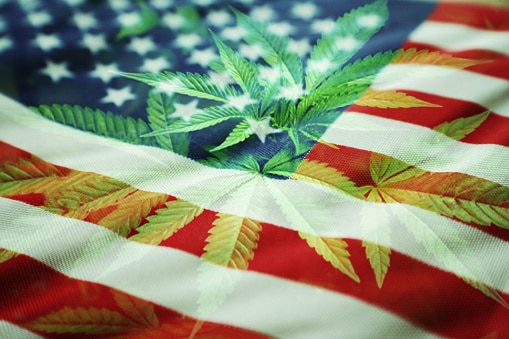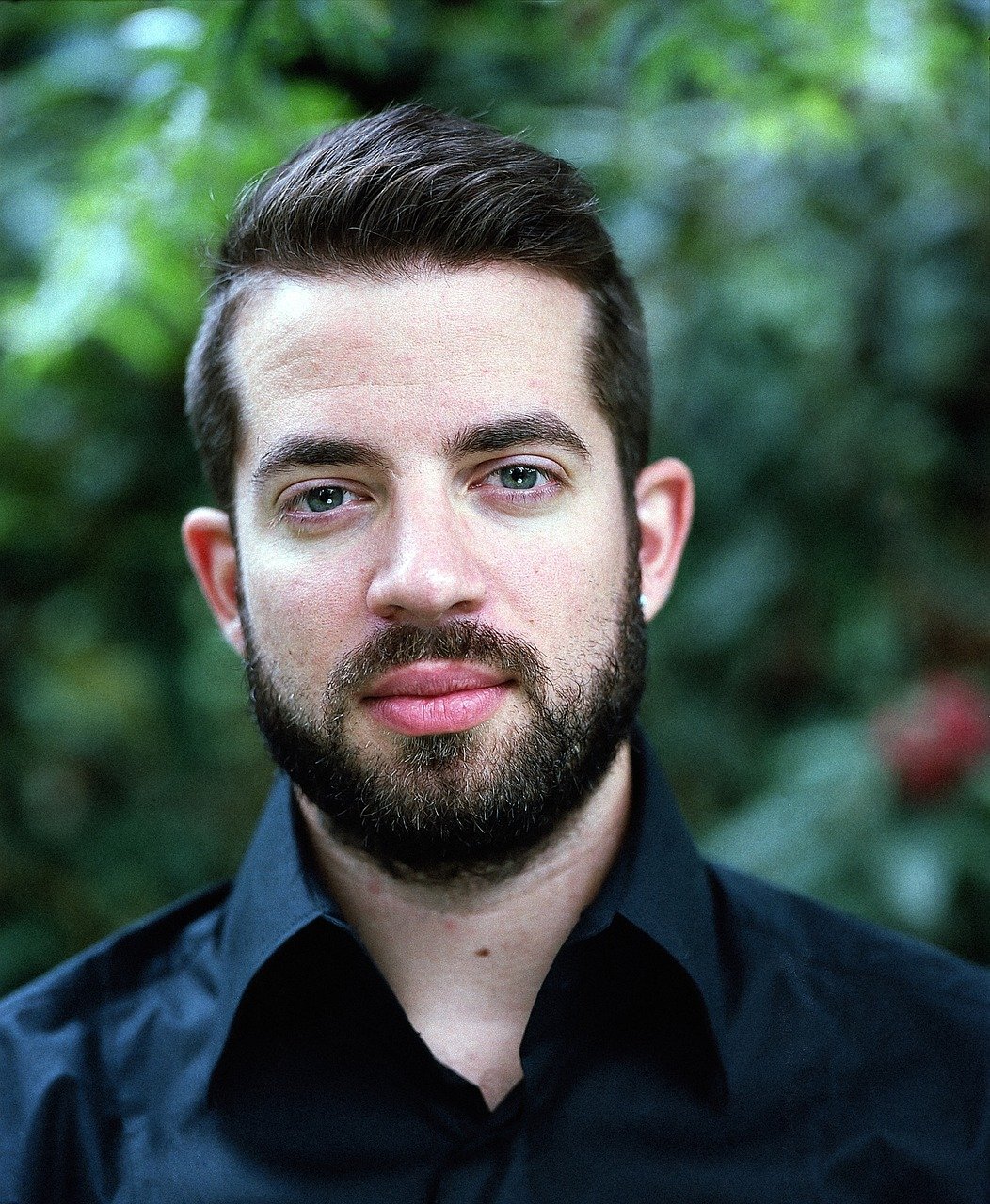With more than two-thirds of Americans supporting the legalization of marijuana use and a good number of those Americans using marijuana themselves, it’s undeniable – weed has gone mainstream. From sea to shining sea and every city in between, there are people lighting up and reaping the benefits of cannabis. But where in the U.S. are people lighting up the most?
Every state comes with its set of stereotypes: California has surf boards and acai bowls, Texas has diesel trucks and bumper stickers, and Florida has gator wrestling and bath salts. But with changing laws and positive public opinion, which states have added ‘stoner’ to their stereotype list? While some states are shoe-ins, some others might surprise you . . .
California
Our first shoe-in of the bunch is The Golden State, to nobody’s bewilderment. Even before the last decade’s cannabis revolution, California had a reputation of being one of the “haziest” states in the nation. It’s further confirmed that by being the first state to legalize medical marijuana use and having decriminalized possession charges as far back as 1996.
Fast forward 23 years, and California sold a projected 3.1 billion dollars worth of legal cannabis in 2019 – the highest amount among all U.S. states. From that, California raked in an estimated $635 million in state and local cannabis tax revenue, which will be allocated to assisting at-risk youth, grants for social workers, building safer roads, and more.
While California has the highest legal marijuana sales in the nation, its huge population prevents it from cracking the top ten in terms of percentage of population using marijuana by state. According to studies by the Substance Abuse and Mental Health Services Administration (SAMHSA), approximately 15% of Californians smoked pot within the last year, accounting for over 4.6 million users (and also the highest U.S. state). However, more recent statistics suggest that percentage has risen to 18.89%, which represents more than 6.7 million marijuana users!
Michigan
The Great Lakes State serves as the first dark horse in this group, inching out California with a reported 18.91% of Michiganders using marijuana. While the percentage of the state’s population is slightly greater, that doesn’t translate to more overall users. Still, approximately 1.87 million Michigan residents have smoked pot within the last year.
While that number might be surprising to many, some major Michigan cities have been proponents of lenient cannabis laws for years. Since the 1970s, the college town of Ann Arbor has had very loose possession laws – with possession of small amounts of weed being totally decriminalized. At the time, these laws were seen as the most lenient in the country. And while Ann Arbor’s laxed laws sparked outrage for some, many Michigan cities followed suit and decriminalized cannabis prior to statewide legalization.
Once Michigan did legalize the recreational use of marijuana, the state had already been benefiting from the medical cannabis market for years, generating approximately 1 billion dollars in 2019 alone. Recreational sales seem to slowly be catching up, with more than $31 million worth of cannabis products sold in just the first three months of operation – December 2019 to February 2020. With February’s numbers more than doubling December’s, Michiganders don’t seem to be slowing down anytime soon.
New Mexico
Though the recreational use of marijuana remains illegal in New Mexico, residents of the Land of Enchantment aren’t strangers to the wonderful world of weed. Sources show that 18.99%, or nearly 400,000, of New Mexico’s residents have used marijuana over the past year.
While overall legalization has evaded New Mexico, there have been pushes within the state’s government to confront the issue for years. As early as 1999, former New Mexico Governor Gary Johnson endorsed weed’s legalization, explaining that the herb’s dangers had been greatly amplified. This however led to many state and law enforcement officials – including the lieutenant governor, secretary of the New Mexico Department of Public Safety, and the Director of the Office of National Drug Control Policy – denouncing and protesting Johnson’s stance.
As of 2019, New Mexico is earning more than $120 million in medical marijuana sales annually. Seeing the economic potential of legal cannabis, in 2019 New Mexico’s House of Representatives passed a recreational legalization bill, but the bill stalled in the Senate Finance Committee. However, there have been recent strides in New Mexico to finally decriminalize pot, with Gov. Grisham signing a bill that makes first-time possession of up to a half ounce of cannabis a petty misdemeanor offense.
Massachusetts
History has an odd way of working itself out. In 1911, Massachusetts became the first state in the U.S. to restrict the sale of cannabis. On November 20th, 2018 – nearly 110 years later – Massachusetts became the first East Coast state with recreational marijuana stores. In the first fiscal year alone, the Bay State’s cannabis stores reported over $420 million worth of sales. With more than 30 licensed recreational cannabis stores in the already small state, along with dozens of cultivators and manufacturers, those sales are only going to increase.
A reported 20.87% of Massachusetts residents have used cannabis within the past year. With an estimated population of 6.902 million, that percentage accounts for over 1.4 million marijuana users. Boston, along with the help of the 100+ colleges in the Boston Metropolitan area, contribute a tremendous portion of those weed users.
New Hampshire
Massachusetts’ neighbor to the north is lagging behind the rest of the northeast when it comes to cannabis law. In New Hampshire, cannabis is still illegal for recreational use, despite multiple pushes to consider a change in policy. In 2014, state legislature voted in favor of a bill that seeked to legalize the sale and personal use of cannabis. Unfortunately, debates on tax issues stalled the bill into limbo. Efforts have since refocused to a bill that would simply legalize possession and home cultivation of weed – leaving out production and sale. Though that bill also passed in the House, the coronavirus has derailed voting plans for the Senate.
Despite that, 20.89% of The Granite State’s residents are still cannabis users. With over ⅕ of their residents smoking pot already, you would think that state representatives would see the economic value in legalizing marijuana, but New Hampshire’s medical marijuana laws are some of the strictest in the nation. Still, a glimmer of hope exists in New Hampshire decriminalizing weed back in 2017, as well as Senate Bill 420, which allows MMJ to cultivate their own cannabis.
Rhode Island
Rhode Island’s current stance with legal cannabis paints a picture similar to New Hampshire’s. Though 21.21%, or 224,000+, of its residents use marijuana, recreational use remains illegal. Remarkably, there have been bills submitted to legalize marijuana in Rhode Island every year for the past 9 years, but all have been unsuccessful. A continuous trend in their failure has been the bills being “held for further study” without any further action.
However, The Ocean State has some advantages on New Hampshire when it comes to the subject of medical marijuana. In 2006, Rhode Island became the eleventh state to legalize the medical use of cannabis, and in 2009 it became the second state to introduce a marijuana dispensary system. Recently, there has been news of Rhode Island regulators announcing the licensing period for six new cannabis dispensaries, so the ball seems to be rolling in the right direction.
Washington
Taking a leap to the opposite coast of the United States, we have Washington – one of the nation’s most progressive states in terms of cannabis policy. In 1998, with The Seattle Times’ historic endorsement, Initiative 692 was approved and made Washington one of the first states to decriminalize medical marijuana. Despite the initiative not containing clear details on the sale of marijuana, many dispensaries were established after I-692 passed, and weed’s public approval continued growing.
On November 6, 2012, Initiative 502 was approved by Washington voters, legalizing the possession of marijuana for the state’s residents. After the U.S. Department of Justice announced it wouldn’t interfere with the legalization of recreational marijuana on the state-level, Washington started accepting applications for retail, cultivation and production licenses. Today, Washington is selling a projected $1.1 billion worth of legal cannabis products – $395.5 million of which is being collected by the state in tax revenue. It’s no surprise that 24.18% – or 1.7+ million – of Washington’s residents are pot smokers.
Alaska
24.82% of Alaskan residents have smoked weed in the past year. While that percentage marginally bests Washington, it only accounts for 176k people due to Alaska’s meager population. Still, Alaska is one of the most relevant states in the storied history of marijuana rights. In 1975, the Alaska Supreme Court ruled that the state constitution’s right to privacy protected the possession in small amounts and the personal use of cannabis, effectively legalizing marijuana. However, prohibitionists went on to recriminalize cannabis in 1990 – winning the vote by a slight margin.
That era of criminalization was brief, with medical marijuana becoming legal in 1998. After many attempts at further legalizing weed fully, Alaskan voters passed Measure 2, making Alaska the third state to legalize weed for recreational use and sale.
Maine
Maine is another state with a colorful past when it comes to cannabis law. Having experimented with decriminalizing possession of small amounts of marijuana as far back as 1976, a broader level of decriminalization was ushered in when former Gov. Baldacci signed the LD 250 legislation in 2009. LD 250 being signed made Maine one of the most lenient states in the nation in terms of cannabis policy at the time – making possession of 2.5 ounces or less a civil infraction.
Full legalization was the logical next step, but putting all of the pieces together has proven to be difficult for The Pine Tree State. In 2016, that step was ready to be taken when The Marijuana Legalization Act was brought into focus. However, Gov. LePage soon vetoed a coexisting bill regarding cannabis sale taxation – stalling the process for a few months before the veto was overturned by the state legislature. Maine is primed to reap the economic benefits of full legalization, with 24.53% (325k+) of its residents using cannabis already. Unfortunately, plans of beginning sales in the spring of 2020 were interrupted by COVID-19.
Vermont
The Green Mountain State has been publicly considering cannabis legalization since 2014, with former Gov. Peter Shumlin sharing his support for a taxed and regulated legal marijuana system. That’s no surprise, considering that over 19% of Vermont residents were already cannabis users at the time – a stat that has risen to 25.71%, or 160k+, of Vermont’s residents in years since.
Though a state-commissioned study released in early 2015 showed Vermont gaining a projected $75 million a year in tax revenue, action was stalled. In 2018, after a series of bills, a veto, and an amended version of the bill – H.511, personal possession of cannabis was legalized, in addition to allowing individuals to cultivate two plants. H.511, however, didn’t include a tax-and-regulate system for marijuana. While the plan was to move forward to a plan of that nature, the state legislature has failed to do so thus far.
Colorado
After marijuana prohibition set in during the early 20th century, the thought of ‘Cannabis Tourism’ was laughable. But just a few short generations and over $1.5 billions annual sales later, Colorado has proven it to be a profitable investment of time and resources. The Centennial State is the home to over 1.6 million marijuana users, accounting for 27.77% of its overall population. Those users, along with the millions of tourists each year, have generated over a billion dollars in tax revenue for the state since it legalized cannabis in 2014.
Some common-sense cannabis policy and very lenient possession laws have contributed to Colorado’s massive success with their regulated weed market. As of 2016, any adult within Colorado’s borders can have up to an ounce of cannabis – no matter whether they’re a resident or a visitor. This line of thinking extends into consumption laws too, with it being permitted and enforced similarly to alcohol. In turn, these regulated practices as well as funding from the tax revenue have supported marijuana education campaigns for minors, providing information on marijuana laws, impacts on youth use, and the potential side effects of using cannabis – resulting in adolescent abuse of marijuana declining to its lowest numbers in years.
Oregon
When it comes to cannabis law, Oregon has always been on the fast track. Back in 1973, Oregon became the first state to decriminalize cannabis, with possession of up to an ounce only resulting in a fine. Though there were attempts to recriminalize marijuana, Oregon voters remained steadfast in their efforts to further legalize the herb. In 1998, the Oregon Medical Marijuana Act modified state law to permit the cultivation, possession and use of marijuana for patients with qualifying conditions. This sentiment was extended even further in 2010 when the Oregon Board of Pharmacy reclassified marijuana as a Schedule II drug, clashing with the federal classification.
After Measure 91 was approved in 2014, the recreational use and cultivation of cannabis was legalized. Since then, the number of dispensaries in The Beaver State has grown to more than 660. With legal cannabis being so plentiful, acceptable, and accessible, it makes sense that over 1.2 million Oregon residents – more than a quarter of the entire population at 28.56% – use marijuana.
To learn more about different cannabis laws and use around the nation, check out these other articles from The Weed Blog:





